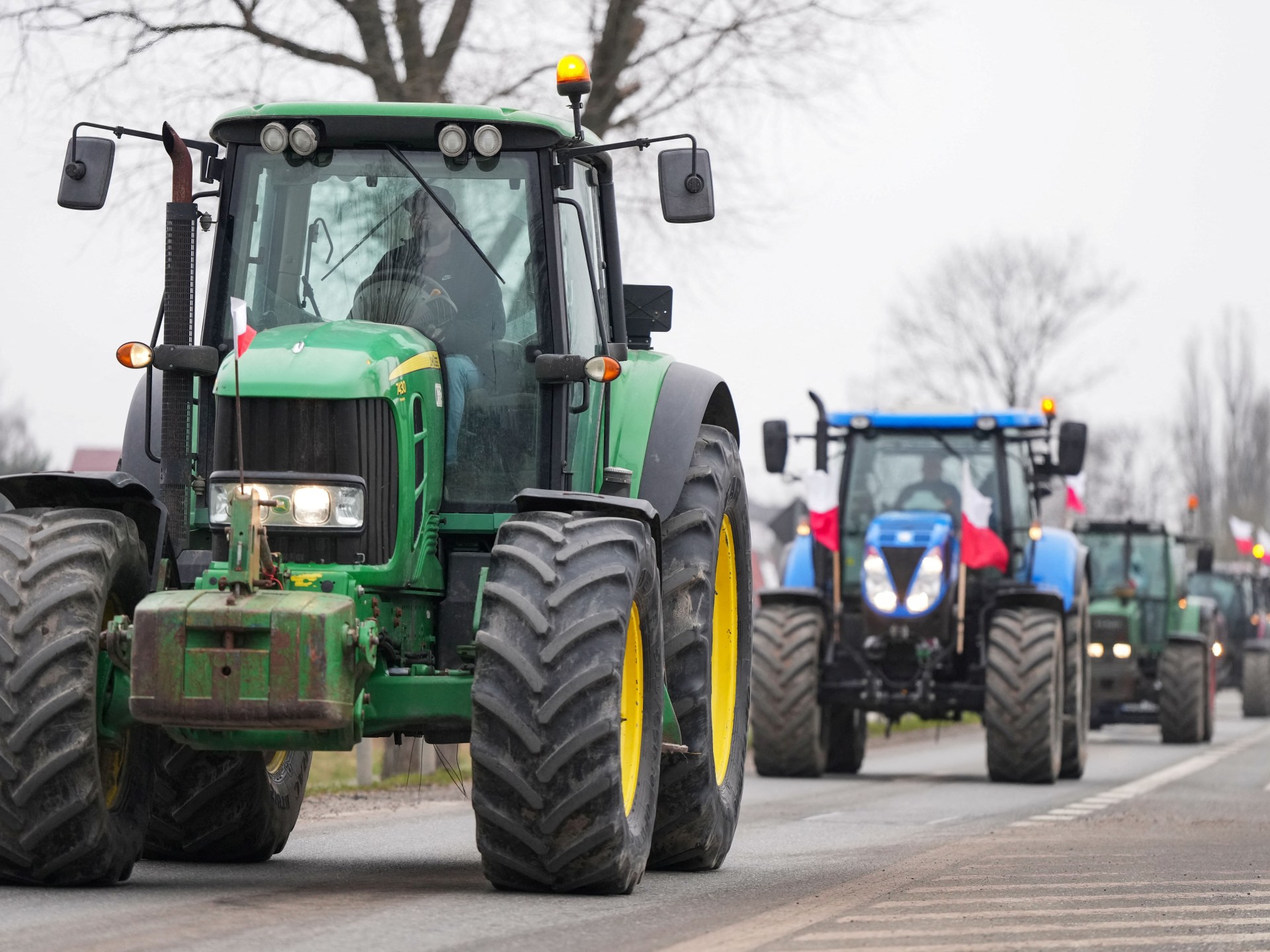
Polish farmers end blockade at the Ukraine border, after months of protests over cheap imports.
Polish farmers have called off their protest at the last border crossing with Ukraine, lifting a blockade that has dragged on for months, soured bilateral relations and buffeted Ukraine’s trade.
Truckers in Poland began blocking the border late last autumn, angered by what they said was Ukraine’s use of a wartime easing of border restrictions to win market share.
Farmers later joined their ranks, complaining about cheap Ukrainian food imports.
Polish farmers ended their blockade of the Rava-Ruska crossing on Monday morning, Ukraine’s border guard spokesman said, following months of diplomacy by Kyiv.
“Fortunately, we have all directions on the border with Poland unblocked,” said Andriy Demchenko, the border official, adding that trucks were crossing in both directions. Poland’s border guard spokesman confirmed that comment.
Mykola Solskyi, Ukraine’s minister of agrarian policy and food, praised what he said was “constructive work” by Poland.
Ukraine’s daily average food exports by truck were up almost 20 percent on Monday compared with mid-April, said Taras Vysotsky, Solskyi’s first deputy.
Trucks carrying grain, the issue at the heart of the Polish-Ukrainian dispute, will still face checks on the Polish side, Kyiv officials said.
‘A thing of the past’
Ukraine’s ambassador to Poland, Vasyl Zvarych, said he believed the blockades were “a thing of the past”.
However, Roman Kondrow, the leader of a local farmers’ organisation in the region bordering Ukraine, said protests could resume if needed, Polish news agency PAP reported.
Adrian Wawrzyniak, a spokesperson for the Solidarity farmers’ union, told the Reuters news agency the farmers were continuing talks with the government and planned a protest in Warsaw on May 10.
In an attempt to address the protesters’ demands, Poland decided this month to pay 2.1 billion zlotys ($522m) in subsidies to farmers to compensate them for low grain prices.
The protests drew sharp criticism from Ukraine during the winter, when protesters spilled grain from trucks and train carriages.
Warsaw and Kyiv have been engaged for months in talks at different levels to try to find a solution, with Ukraine calling on the European Union to intervene.
Kyiv says its agricultural exports via Eastern Europe have not damaged EU markets, but that its trade has suffered from the protests. Ukraine has not published full data for its economic losses.
Ukraine is a major European grain producer. Talks on its agricultural sector are expected to be a central issue during its negotiations to join the EU.